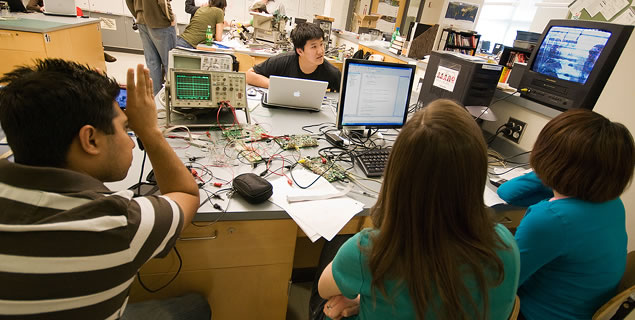High Skill vs Low Skill: Global Labor Market in a Bind

If we thought unemployment was troublesome now, we aren’t prepared for 2020. According to a new study done by McKinsey Global Institute, the demand for low-skilled workers is gradually declining, while we currently have a surplus of high skilled jobs available in the labor market. This means we will continue to have shocking unemployment numbers unless we educate our current and future work force. Furthermore, the amount of people looking for low-skilled work, and the lack of people qualified for skilled work is correlated with the income inequality, and with the 75 million young people who are without jobs.
Now would be the best time if ever to invest in a college degree. According to McKinsey, by 2020 there will be “38 million to 40 million fewer workers with tertiary education (college or postgraduate degrees) than employers will need." In countries with developing economies, there will be “45 million too few workers with secondary education”.
The most shocking and the most damaging statistic the study found was that by 2020, there will be “90 million to 95 million more low-skill workers (those without college training in advanced economies or without even secondary education in developing economies) than employers will need.” Unemployment is not projected to improve unless companies, the government and individuals invest in increasing the level of skills in workers.
The study also find the population of most advanced economies is aging, meaning they will retire soon, adding more to the millions of people already without work.
While this is an economic problem, some blame does rest on the individual company level, MGI says. Possible solutions the study suggested is for businesses to “raise educational attainment and provide job-specific training.” They continued by saying, “secondary and vocational training must be revamped to retrain mid-career workers and to provide job-specific skills to students who will not continue on to college.” Places of learning play a role too, the study says. They need to figure out how to graduate students faster, and particularly for more students to graduate with degrees in the sciences or technical studies.
Don’t think for a minute that the government would escape blame either. The writers of the study say policy makers in advanced as well as developing economies need to find ways to produce high skilled workers capable of filling the open positions, but also find ways to create jobs suited for low skilled workers. The study has solutions like “include moving up the value chain in developing economies (food processing creates more employment than growing export crops, for example) and finding opportunities for workers without a college education to participate in fast-growing fields—such as health care and home-based personal services—in advanced economies.”
The global labor force is predicted to grow from 2.9 billion to 3.5 billion by 2030. We need radical job market change quickly, but all of the burden should not be placed on the shoulders of the authority. It should be the job of the individual to pursue some sort of higher education be it a doctorate, a masters, a bachelors degree, an associates, or a community college degree which would all qualify for tertiary education.
Find more stats, graphs, explanations and suggestions here.




